Water Resources
Water resources are sources of water that are useful or potentially useful to humans. They include both freshwater and saltwater sources. The management of water resources is crucial for providing clean drinking water, supporting agriculture, industry, and energy production, as well as for preserving natural ecosystems.
Key Concepts to Understand
- Water Cycle: Understand the processes of evaporation, condensation, precipitation, and runoff that drive the continuous movement of water on Earth.
- Water Scarcity: Learn about the increasing demand for water and the limited availability of freshwater resources.
- Water Pollution: Explore the different types of water pollution, their sources, and the impact of polluted water on human health and the environment.
- Water Management: Understand the various strategies and technologies used to manage and conserve water resources, including irrigation, desalination, and wastewater treatment.
- Global Water Issues: Explore the challenges related to access to clean water, international water disputes, and the effects of climate change on water resources.
Study Guide
Use the following study guide to enhance your understanding of water resources:
- Research and create a diagram illustrating the water cycle, including the processes of evaporation, condensation, precipitation, and runoff.
- Investigate a region facing water scarcity and create a report detailing the causes and potential solutions for addressing the water shortage.
- Conduct a study on a specific water pollution issue (e.g., agricultural runoff, industrial discharge) and present its impact on both the environment and human health.
- Explore a water management technique (e.g., drip irrigation, rainwater harvesting) and describe how it helps in conserving water resources.
- Research a global water issue (e.g., the water crisis in Flint, Michigan, international water conflicts) and present its causes, effects, and potential resolutions.
Understanding water resources is essential for addressing the challenges of water scarcity, pollution, and sustainable water management. By studying these key concepts and completing the study guide, you will gain a deeper insight into the importance of preserving and efficiently using our planet's water resources.
.◂Science Worksheets and Study Guides Seventh Grade. Cell Reproduction
Study Guide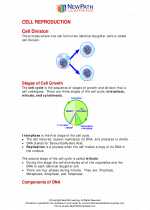 Cell Reproduction
Cell Reproduction  Activity Lesson
Activity Lesson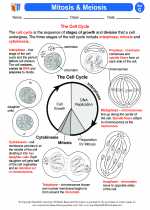 Mitosis & Meiosis
Mitosis & Meiosis  Worksheet/Answer key
Worksheet/Answer key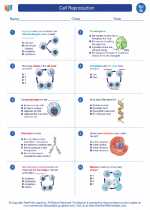 Cell Reproduction
Cell Reproduction  Worksheet/Answer key
Worksheet/Answer key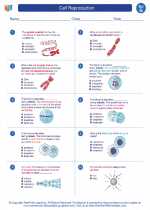 Cell Reproduction
Cell Reproduction  Worksheet/Answer key
Worksheet/Answer key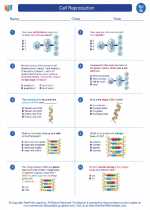 Cell Reproduction
Cell Reproduction  Vocabulary/Answer key
Vocabulary/Answer key Cell Reproduction
Cell Reproduction  Vocabulary/Answer key
Vocabulary/Answer key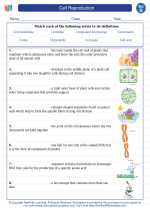 Cell Reproduction
Cell Reproduction  Vocabulary/Answer key
Vocabulary/Answer key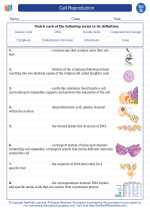 Cell Reproduction
Cell Reproduction  Vocabulary/Answer key
Vocabulary/Answer key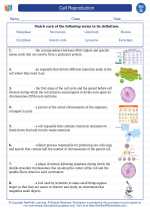 Cell Reproduction
Cell Reproduction  Vocabulary/Answer key
Vocabulary/Answer key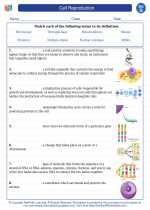 Cell Reproduction
Cell Reproduction  Vocabulary/Answer key
Vocabulary/Answer key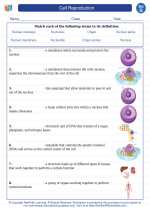 Cell Reproduction
Cell Reproduction  Vocabulary/Answer key
Vocabulary/Answer key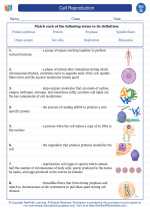 Cell Reproduction
Cell Reproduction  Vocabulary/Answer key
Vocabulary/Answer key Cell Reproduction
Cell Reproduction 

 Activity Lesson
Activity Lesson
 Worksheet/Answer key
Worksheet/Answer key
 Worksheet/Answer key
Worksheet/Answer key
 Worksheet/Answer key
Worksheet/Answer key
 Vocabulary/Answer key
Vocabulary/Answer key
 Vocabulary/Answer key
Vocabulary/Answer key
 Vocabulary/Answer key
Vocabulary/Answer key
 Vocabulary/Answer key
Vocabulary/Answer key
 Vocabulary/Answer key
Vocabulary/Answer key
 Vocabulary/Answer key
Vocabulary/Answer key
 Vocabulary/Answer key
Vocabulary/Answer key
 Vocabulary/Answer key
Vocabulary/Answer key

The resources above cover the following skills:
LIFE SCIENCE
From Molecules to Organisms: Structures and Processes
Gather and synthesize information to explain how prokaryotic and eukaryotic cells differ in structure and function, including the methods of asexual and sexual reproduction.